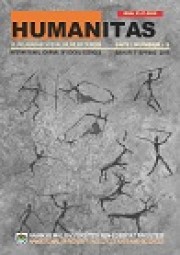JOHN DRYDEN, RESTORATION, AND NEOCLASSICISM: SAMPLES OF PRESCRIPTIVE CRITICISM IN ENGLISH LITERATURE
JOHN DRYDEN, RESTORATION, AND NEOCLASSICISM: SAMPLES OF PRESCRIPTIVE CRITICISM IN ENGLISH LITERATURE
Author(s): Petru GolbanSubject(s): Literary Texts
Published by: Namık Kemal Üniversitesi Fen-Edebiyat Fakültesi
Keywords: Restoration; Neoclassicism; Literary Criticism; Literary Theory; Prescriptive Criticism; Critic; Writer-Critic.
Summary/Abstract: Literary criticism implies the intellectual capacity to evaluate and understand the literary text, the analysis of particular works being the main aim of literary criticism, but, though achieved by most of the critics prior to the twentieth century, in English background criticism has started with some purposes which are alien to the nature of critical act. For instance, Sydney defends, Dryden prescribes, Pope reflects and prescribes, Fielding introduces a new genre and Wordsworth a new type of poetry, etc. English criticism during the neoclassical period was a complex and multi-voiced phenomenon, represented by a large number of critics and writer-critics who developed a reflexive but above all normative and prescriptive critical discourse. John Dryden and his Of Dramatic Poesie, An Essay would better show the condition of English criticism in Restoration. The first half of the eighteenth century was dominated by the neoclassical ideas expressed by Alexander Pope in An Essay on Criticism and An Essay on Man; the second half of the century was governed by the personality of Dr Samuel Johnson and his influential Lives of the Poets and Dictionary of the English Language. The most prescriptive critical voice in English literature belonging to the neoclassical period is that of John Dryden, as to be equalled perhaps only by Alexander Pope. To reveal the essence of prescriptive criticism as explaining and giving rules as well as showing the direction for literary production with regards to the critical discourse of Dryden and that of Pope represents the purpose of this study.
Journal: Humanitas - Uluslararası Sosyal Bilimler Dergisi
- Issue Year: 3/2015
- Issue No: 05
- Page Range: 127-136
- Page Count: 29

